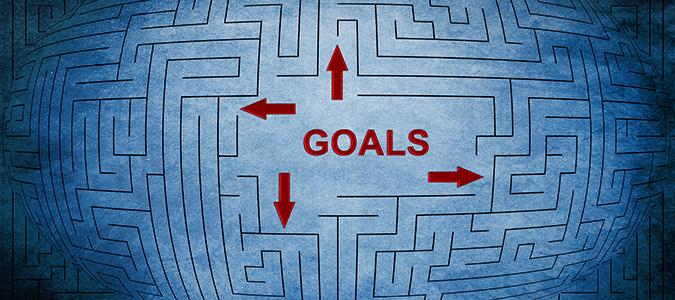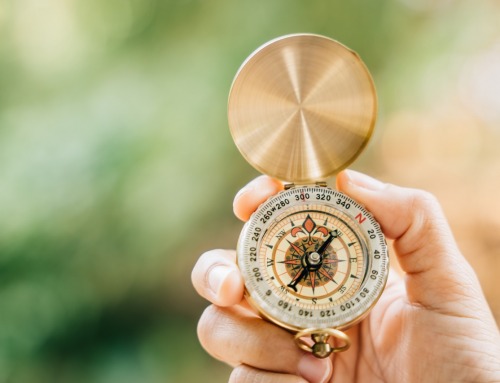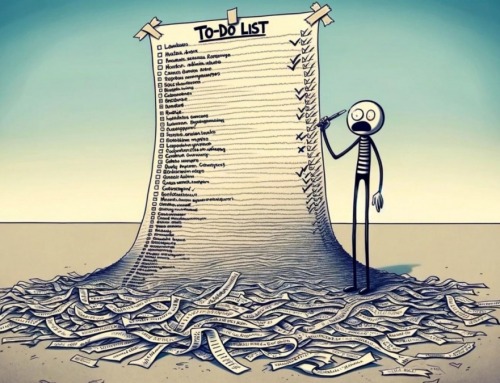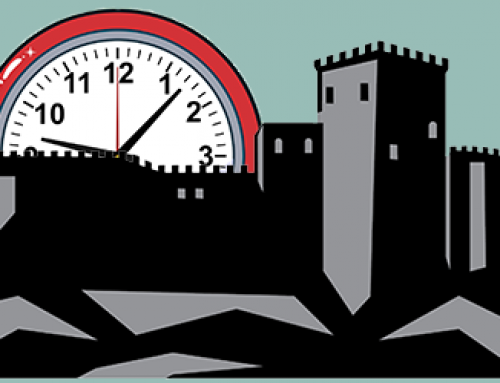I’m a huge advocate of goals! Goals have tremendous power. In fact, goals have the power to focus the potential of mankind. Goals have the potential to send a man to the moon, to cure cancer, and to change lives.
Unfortunately, in much the same way that nuclear power can be used to power cities or destroy them, goals have the power to create and the power to destroy.
When goals are used incorrectly, they have a tendency to destroy motivation, to kill self-confidence, and create an apathy towards goals–all of which diminish achievement and progress.
What’s the wrong way to use goals?
Consider the example of a physical trainer who is teaching someone how to workout. If you’re unfamiliar with weightlifting, and it’s your first day in the weight room, you probably shouldn’t attempt to bench press 300 pounds. That’s not only a bad idea, but you could drop the weight on yourself and be in big trouble!
Unfortunately, many people approach goals with a similar, naive approach. A good trainer will discourage you from trying to lift too much. If you try to lift too much, you’re likely to get hurt or be disappointed.
And, in the early stages of starting a fitness plan, the last thing you need is an injury, disappointment, or outright failure.
Increase your effectiveness with PlanPlus Online.
A productivity system for leaders.

Instead, you need to focus on small victories.
Using goals properly follows much of the same logic as starting a fitness regimen.
It’s best to start small and build on a series of successful outcomes in order to build your confidence in yourself and the process. If you develop a habit of successful outcomes and the confidence to continue, you’ll be on the right track to continue using goals as a tool for accomplishment instead of a measure of success.
Far too often, goals are used as a way to measure success or failure toward a certain objective. While in many instances this is simply the hard reality of life, I believe there’s a largely unrecognized utility for goals, which is much like the purposes of a regular fitness program.
Goals can be used as a regular regime of personal development and continuous improvement.
If you set regular and continuous goals to get better and improve, you’re more likely to achieve long-term benefits than you will be if you set one large, long-term goal.
Millions of people have discovered the benefits of a realistic and well-defined daily workout to their overall health and wellness. There are similar mental and emotional benefits in finding regular ways to use goals on a daily basis.
If you’re new to daily goal setting, then I encourage you to start small and focus on something short-term and easily within your reach. As you develop confidence, discipline, and greater self-awareness, you can set larger and more challenging goals.
When John F Kennedy announced to millions of Americans that he was creating a goal to put a man on the moon, he wasn’t doing it from a place of inexperience in goal setting or achievement. He wasn’t just throwing out some wildly aggressive goal for the sake of doing it. He was coming from a personal position of confidence in American ingenuity based on a well-established history of achievement and accomplishment.
When you take the time to build the mental muscles of goal planning and achievement by following the proper steps, you can build your own history of success, and you too can become capable of setting a goal that will focus the potential of mankind.






